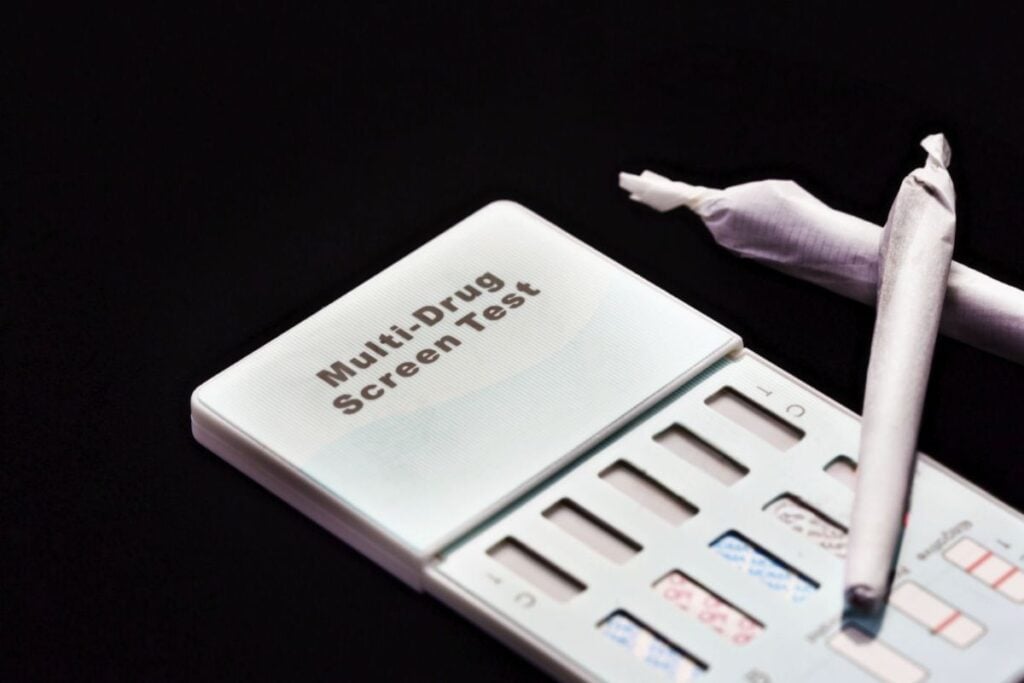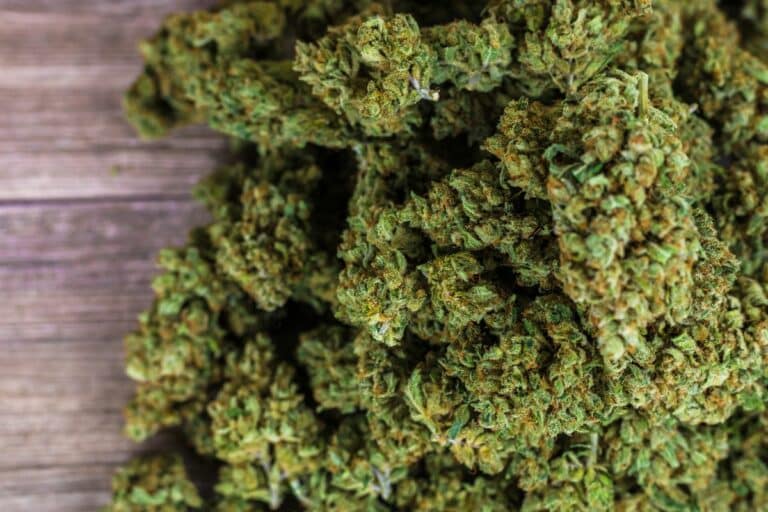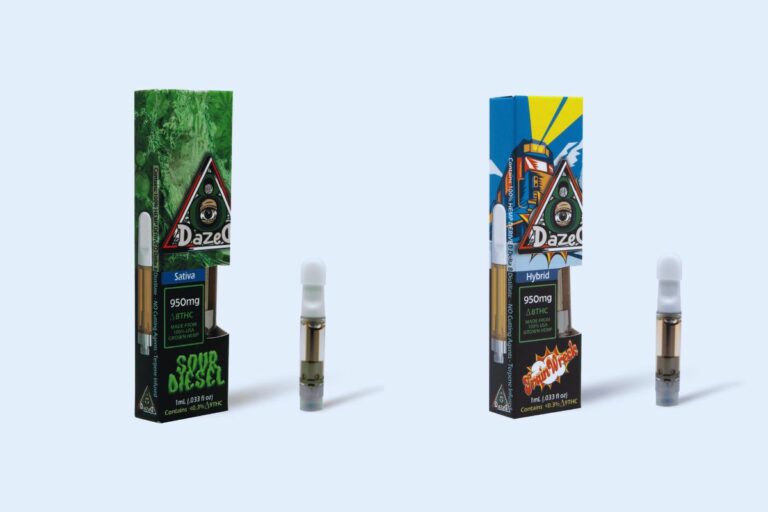If I Smoke Once a Week, How Long Till I’m Clean? A Practical Guide
Understanding THC in the Body
THC (tetrahydrocannabinol) is the primary psychoactive compound in cannabis, and when it thc enters the bloodstream, it is responsible for the high users experience. When inhaled, THC enters the bloodstream and travels to the brain, interacting with cannabinoid receptors. This interaction affects mood, memory, coordination, perception, and overall mental health.
Table of contents
Once inside the body, THC metabolizes into byproducts, primarily THC-COOH, which is what drug tests detect. These metabolites store in fat cells and gradually exit through urine, sweat, and feces, leading to different detection windows . The length of time THC remains in your system depends on various factors, including metabolism, body composition, frequency of use, and additional factors that affect thc clearance.
Factors Affecting THC Detection Time

1. Body Composition and Metabolism
THC binds to fat cells, so individuals with higher body fat percentages may retain THC for longer periods. People with a faster metabolism may eliminate THC more quickly than those with slower metabolisms.
2. Frequency of Use
Occasional smokers may clear THC faster than frequent users. However, chronic smokers accumulate THC in their fat stores, leading to longer detection windows, while occasional smokers may benefit from shorter detection windows .
3. Type of Drug Test
Different urine drug screens and other drug tests have varying detection windows. Urine tests, the most common method, detect THC for days ovr weeks, while blood tests have shorter detection periods. Hair tests can detect THC use for months.
4. Age and Overall Health
Younger individuals with healthier metabolisms tend to eliminate THC faster than older individuals. Overall health, including hydration levels, diet, and exercise, also influences detoxification speed.
How Long Does Weed Stay in Your System?

5. Occasional Smokers vs. Chronic Users
For occasional smokers (once a week or less), THC generally clears from the system faster than for daily users. However, it still takes several days for the body to eliminate all THC metabolites, which raises the question of how long does weed stay in the system . Chronic users may need weeks or even months to be completely clean.
6. How THC Metabolizes in Occasional Users
Occasional users typically have lower THC-COOH levels in their bodies. However, since THC binds to fat cells, even infrequent use can lead to detectable levels, especially in individuals with more body fat, for an extended period.
THC Detection Methods
| Method | Detection Window | Accuracy | Usage | Pros | Cons |
|---|---|---|---|---|---|
| Urine Test | 3–30 days (varies by use) | High | Workplace drug tests, rehab | Non-invasive, widely used | Long detection time for frequent users |
| Blood Test | 1–2 days (occasional) Up to 7 days (heavy use) | High | Accident investigations, law enforcement | Detects recent use, precise | Invasive, short detection window |
| Saliva Test | 1–24 hours (casual) Up to 72 hours (heavy use) | Moderate-High | Roadside drug testing, workplace | Easy to administer, non-invasive | Short detection window |
| Hair Follicle Test | Up to 90 days | Very High | Court cases, forensic analysis | Longest detection time | Expensive, doesn’t detect recent use |
| Breath Test | 2–12 hours | Developing technology | Law enforcement (DUI checks) | Non-invasive, detects very recent use | Not widely available yet |
| Sweat Patch | Up to 7–14 days | High | Continuous monitoring (rehab programs) | Detects long-term use | Requires wearing a patch for days |
7. Urine Tests
Urine tests are the most common method for detecting THC. These tests look for THC-COOH and can lead to a positive test for cannabis use for:
- 7-10 days in occasional users
- Up to 30 days in heavy users
8. Blood Tests
Blood tests detect active THC in the bloodstream, making them useful for determining recent smoking cannabis use.
- THC can be detected for 1-3 days in occasional users
- Chronic users may test positive for up to 7 days
9. Saliva Tests
Saliva tests detect THC for a short period. These saliva tests, also known as oral fluid tests, are commonly used in roadside drug tests.
- THC remains detectable for up to 24 hours in occasional users
- Chronic users may test positive for up to 72 hours
10. Hair Tests
Hair follicle tests have the longest detection window. THC metabolites deposit in hair follicles and remain detectable for:
- Up to 90 days after use
- Longer for chronic users due to prolonged exposure
Natural Detox Methods for THC Clearance

11. Hydration and Diet
Drinking plenty of water helps flush out toxins, including THC. Maintaining a balanced diet rich in fiber, fruits, and vegetables, along with regular exercise, supports the body’s natural detoxification processes.
12. Exercise and Fat Reduction
Since THC binds to fat cells, reducing body fat through exercise can accelerate detox. Engaging in regular exercise, including cardiovascular activities like running, cycling, and swimming, aids in breaking down fat stores and releasing THC.
13. Sauna and Sweating
Sweating through saunas or intense workouts can help eliminate THC through the skin. However, this method should be combined with proper hydration to minimize the risk of false positives .

Tips for Reducing THC Detection Time
| Method | Effectiveness | How It Works | Best For | Limitations |
|---|---|---|---|---|
| Hydration (Water, Electrolytes) | Moderate | Dilutes urine, reducing THC metabolite concentration | Urine tests | Excessive dilution may raise suspicion |
| Exercise & Cardio | Moderate-High | Burns fat where THC is stored, speeding up metabolism | Long-term users, urine tests | May temporarily increase THC in blood |
| Healthy Diet (Fiber & Antioxidants) | Moderate | Supports liver detox and speeds up metabolism | Frequent users | Works gradually over days to weeks |
| Sauna & Sweating | Low-Moderate | Promotes detox through sweat | Occasional users | Minimal effect on THC metabolites |
| Detox Drinks & Supplements | Varies | Temporarily masks THC metabolites in urine | Urine tests (short-term fix) | Some products may not work reliably |
| Activated Charcoal | Low-Moderate | Binds to THC in the digestive tract | Frequent edible users | Limited effectiveness for smokers |
| Time (Abstinence) | High | Natural detox by allowing THC to metabolize | All test types | Takes days to months, depending on use |
| Cranberry Juice & Diuretics | Low-Moderate | Increases urination to flush THC faster | Urine tests | Can lead to dehydration if overused |
| Sleep & Rest | Moderate | Supports natural detoxification and recovery | Long-term detox | Works gradually over time |
14. Avoiding THC Products
If you’re concerned about drug testing, switching to CBD-only products can help. This raises the question of if i smoke once a week how long till i’m clean, and switching to CBD-only products can help as CBD is non-psychoactive and won’t show up on a standard drug test.
15. Understanding Drug Test Windows
Knowing the detection window for your specific test can help you estimate when you’ll be clean. Factors like hydration, diet, and exercise can influence the timeline.
16. Detox Products and Their Effectiveness
There are detox drinks and supplements marketed for clearing THC. While some may help dilute urine, they don’t eliminate THC from fat cells. Be cautious of unreliable products.
Health Implications of Occasional Smoking

17. Short-Term and Long-Term Effects
Even occasional smoking cannabis use can impact lung function and cardiovascular health. Smoking marijuana stays in the body longer, increases heart rate and blood pressure, which can contribute to mental health issues and be risky for individuals with underlying conditions. However, the body starts to heal quickly after quitting.
When to Seek Addiction Treatment
If you struggle to cut back on cannabis use or feel dependent, seeking professional help may be beneficial. If you struggle to cut back on cannabis use, or does weed cause withdrawal symptoms or negative impacts on daily life, seeking professional help may be beneficial.
Understanding how much thc is present, how long does weed stay in your system, THC metabolism, and detection times can help you prepare for drug tests and make informed choices about cannabis use. While occasional smoking may not lead to long detection periods, individual factors play a significant role in how long THC stays in your system.
By staying hydrated, maintaining general health through a healthy lifestyle, and being aware of detection methods, you can manage THC clearance more effectively.
Conclusion
Understanding how long does weed stay in your system, THC metabolism, and detection times can help you prepare for drug tests and make informed choices about cannabis use. While occasional smoking may not lead to long detection periods, individual factors play a significant role in how long THC stays in your system.
By staying hydrated, maintaining a healthy lifestyle, and being aware of detection methods, you can manage THC clearance more effectively. If cannabis use becomes a concern, especially if dual diagnosis treatment is necessary seeking support or professional guidance may be beneficial.
1.Can drinking water speed up THC detox?
Staying hydrated helps flush thc toxins but does not directly speed up the breakdown of THC stored in fat cells.
2.Does exercise help clear THC faster?
Yes, exercise that burns fat can help release stored THC, potentially reducing detection times. However, avoid working out right before a test, as it may temporarily increase more THC levels in the bloodstream for a few hours and could potentially affect how long it takes five to seven days to clear .
3.Are detox drinks effective for passing a drug test?
Detox drinks can help dilute urine, but they don’t eliminate THC completely. Some may temporarily mask THC levels, but results vary.
4.Does secondhand smoke cause a positive drug test?
It’s unlikely, but extreme exposure in an unventilated space may result in trace amounts being detected, and potentially detect weed .
5.Can I speed up THC detox with supplements?
Certain vitamins and herbal supplements claim to aid detox, but their effectiveness is not scientifically proven. A healthy diet and exercise remain the most reliable methods.










